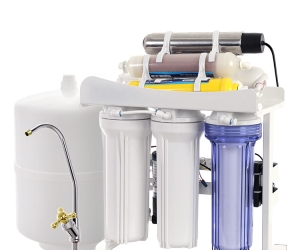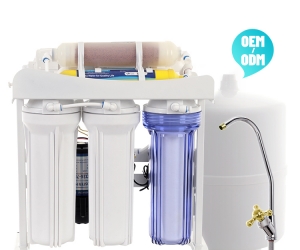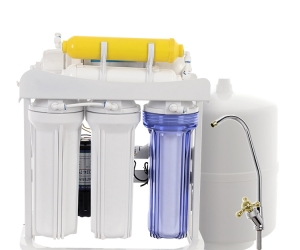According to relative researches, micro-plastic is becoming an increasing contaminant-impurities founded in city tap water. Micro-plastic comes from every plastic-made things in daily life includes bags, bottles and packaging boxes.
What is Micro-plastic?
Micro-plastic is called “PM2.5 in the sea” since it exists mostly in sea and ocean. All the plastic things human beings use accelerate micro-plastic content in sea. With the effect of water cycle, those micro-plastics are founded in rain water and then underground water. When water factories processing reclaimed water for municipal supply, micro-plastics follow city water pipes and finally enter every family. The diameter of them is less than 5mm or even 1mm, so homeowners couldn’t recognize and see the micro-plastics even they do exist in their tap water.
What Micro-plastic Leads To?
There are mainly 3 bad consequences of micro-plastic in tap water and they are respectively listed as below.
Firstly, micro-plastic is a part of plastic products which may contain hazardous additives and plasticisers more or less. Once we drink the tap water directly, these hazardous additives might separate out from micro-plastics and injury health a lot.
Secondly, some harmful heavy metals and herbicides could stick on micro-plastics like polychlorinated biphenyl and atrazine. Every time the tap water flow out, potential harm may follow and damage human body.
Thirdly, micro-plastic could be a carrier of micro-organisms and pathogenic bacterium. Organism and bacterium live and breed on micro-plastics. If tap water with these organisms and bacterium used for cooking and drinking for a long time, there may be a diffusion of them inside of human body and cause diseases of kidney, liver and stomach.
To filter out and eliminate micro-plastics completely, homeowners should pay more attention to two kind of water filters as the following.
Tap Water Filter
This is a water filter directly connected to taps to filter water. Usually, it is made of activated carbon manufactured from charcoal or coconut shell. Activated carbon has an great adsorption effect with a tiny size of 1 μm to 5 μm while most micro-plastics are 5mm-sized or less. (1 mm is equal to 1000 μm ). Unfiltered water flows through activated carbon, contaminants of heavy metals, herbicides, residual chlorine and micro-plastics will be blocked and intercepted, only pure filtered water will pass the tap water filter.
Reverse Osmosis System
Compared with last tap water filter, this filtration system is more expensive also takes more maintenance weekly or monthly. A normal reverse osmosis water filter system has altogether 5 different water filter cartridges respectively are 5 micron PP sediment filter, granular activated carbon filter, carbon block filter, RO membrane filter and a post carbon filter cartridge.
Some investigation and research organizations have found that the minimum micro-plastics share a 2.5 micron size. PP sediment filter, the 1 stage of RO system, can be set as 1 micron to intercept most micro-plastics at the pre filtration step. Then it goes the GAC (granular activated carbon) water filter and CTO (carbon block) filter cartridges to adsorb 99.9% free chlorine, taste, bad odors, harmful chemicals and residual micro-plastics which last pp sediment filter didn’t filter out completely. After that is the essential part of RO water filter system, reverse osmosis membrane significantly filters out all contaminants, impurities and only let purest water molecules pass through the membrane. Finally, the post-carbon filter is used to add beneficial minerals into filtered water and improve its taste.
What the Conclusion Includes?
Micro-plastic is really a kind of water-related contaminants arising in recent years. It has and would caused more health threats in the nearly future. Tap water filter and RO filtration system are two effective methods to eliminate harmful micro-plastics in family tap waters.






